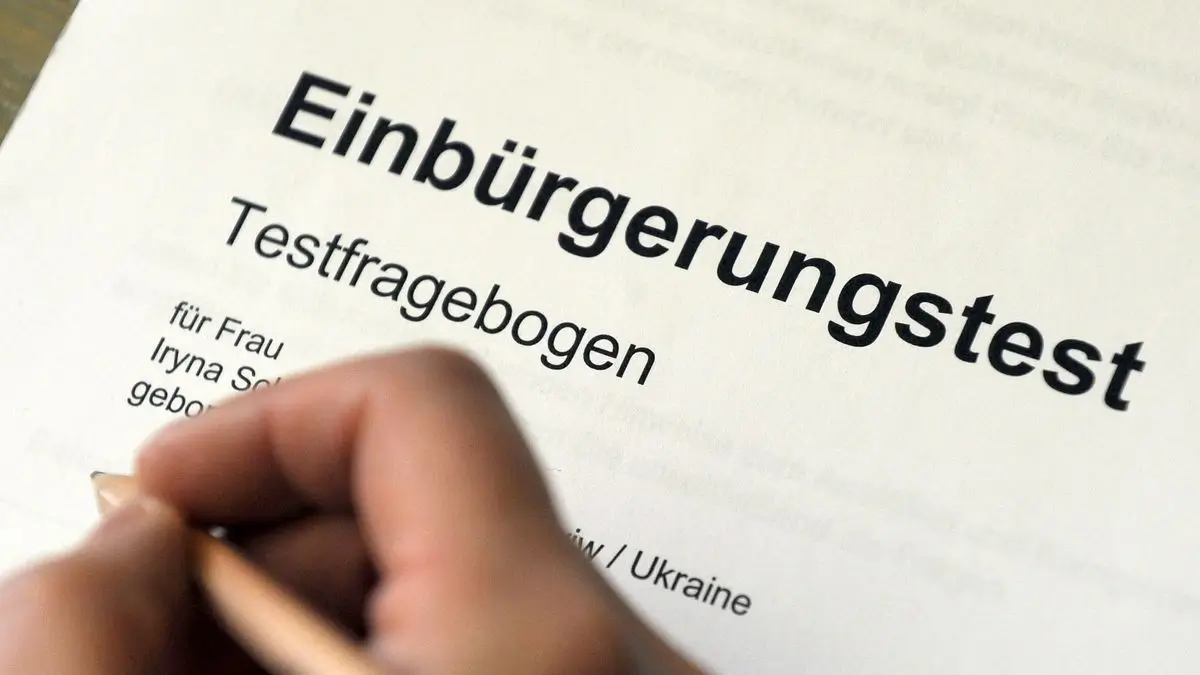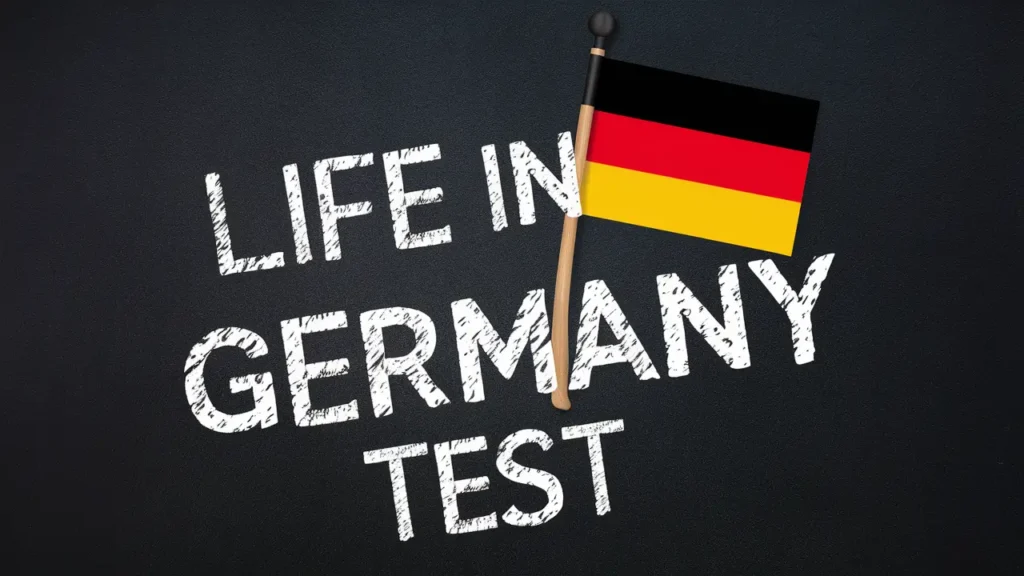Becoming a German citizen is a significant milestone for many immigrants. The German German Citizenship Exam plays a crucial role in this process. This comprehensive guide will walk you through everything you need to know about the exam, from preparation to completion.
- Who Needs to Take the German Naturalization Test?
- Registration and appointment for the Naturalization Test
- Preparing for the Citizenship Exam
- The Structure of the German Citizenship Test
- Sample Questions from the German Citizenship Exam
- What happens if I don’t pass the test?
- Where do the German Citizenship Exam take place?
- Taking the German Citizenship Test
- After the Test: Next Steps
- New Citizenship, New Perspectives
The German Einbürgerungstest is a key step in acquiring German citizenship. It assesses your knowledge of German society, history, and politics. Passing this exam demonstrates your integration into German culture and understanding of its democratic values.
Who Needs to Take the German Naturalization Test?
The German naturalization test is mandatory for most individuals seeking German citizenship. However, some groups are exempt:
- Children under 16 years old
- Individuals with certain physical, mental, or emotional disabilities
- Those who have completed German schooling
If you’re over 16 and don’t fall into these categories, you’ll need to take the test.
Registration and appointment for the Naturalization Test
You can often take the naturalization test at a local Volkshochschule. You can also ask there about the dates for the test. There are usually registration periods of around 3 weeks. You should therefore try to arrange an appointment for your naturalization test early. You can register for the naturalization test online or in person,. If you decide for the second option, you should bring your valid passport with you. Please also note that there is a fee of 25 euros for the test. If you have to repeat the test, the fee must be paid again.
Preparing for the Citizenship Exam
Effective preparation is key to passing the German naturalization test. Here are some strategies to help you succeed:
- Study the official materials provided by the Federal Office for Migration and Refugees (BAMF).
- Take German practice tests to familiarize yourself with the question format.
- Stay informed about current events in Germany.
- Join study groups or take preparatory courses at local adult education centers.
The Structure of the German Citizenship Test
The German naturalization test consists of 33 multiple-choice questions. You’ll have 60 minutes to complete the exam. Here’s a breakdown of the test structure:
| Section | Number of Questions | Topics Covered |
|---|---|---|
| Federal Questions | 30 | Living in a democracy, history and responsibility, people and society |
| State-Specific Questions | 3 | Specific to the federal state where you’re applying for citizenship |
Sample Questions from the German Citizenship Exam
To give you an idea of what to expect, here are some sample questions from the German naturalization test:
- At what age can you drive a car alone in Germany?
- What is a Christmas tradition in Germany?
- Which country is a neighboring country of Germany?
- What is the role of a judge in Germany?
For each question, you’ll have four answer options to choose from. Only one answer is correct.
For more questions, check the German Citizenship questions catalog .
What happens if I don’t pass the test?
If you don’t pass the test, you can retake the naturalization test as many times as needed. There’s no limit on the number of attempts. However, each time you retake the test, you’ll need to pay a fee of 25 euros. Failing the test won’t jeopardize your naturalization process, but it will cause a delay.
Similarly, if you don’t pass the required language test, you can retake it as often as necessary, with the examination fee being required for each attempt.
Where do the German Citizenship Exam take place?
The naturalization test is typically administered at the local adult education center or Volkshochschule (it depends on your state). You can find a list of all testing centers nationwide at the Federal Office for Migration and Refugees.
Taking the German Citizenship Test
On the day of your German naturalization test, arrive at the testing center early. Bring valid identification and any required documents. The test is conducted on a computer or on paper, and you’ll receive your results immediately after completion or you will get it by mail after a few weeks.
To pass the German naturalization test, you need to answer at least 17 out of the 33 questions correctly. If you don’t pass, don’t worry. You can retake the test as many times as needed, though you’ll need to pay the fee each time.
After the Test: Next Steps
Passing the German naturalization test is a significant achievement, but it’s not the end of your journey. You’ll need to complete the remaining steps of the naturalization process, including:
- Submitting all required documents
- Attending an interview with immigration officials
- Taking the oath of allegiance to the German constitution
Once you’ve completed these steps, you’ll receive your German citizenship certificate, marking the end of your naturalization journey.
New Citizenship, New Perspectives
Becoming a German citizen opens up new opportunities and responsibilities. You’ll have the right to vote, freedom of movement within the EU, and access to a wide range of professions. Remember, citizenship also comes with duties, such as respecting the law and contributing to society.
The German Citizenship Exam is more than just an exam. It’s a gateway to fully participating in German society. By preparing thoroughly and understanding the process, you’re taking a significant step towards your new life as a German citizen. Embrace this opportunity to deepen your connection with Germany’s rich culture and democratic traditions.



